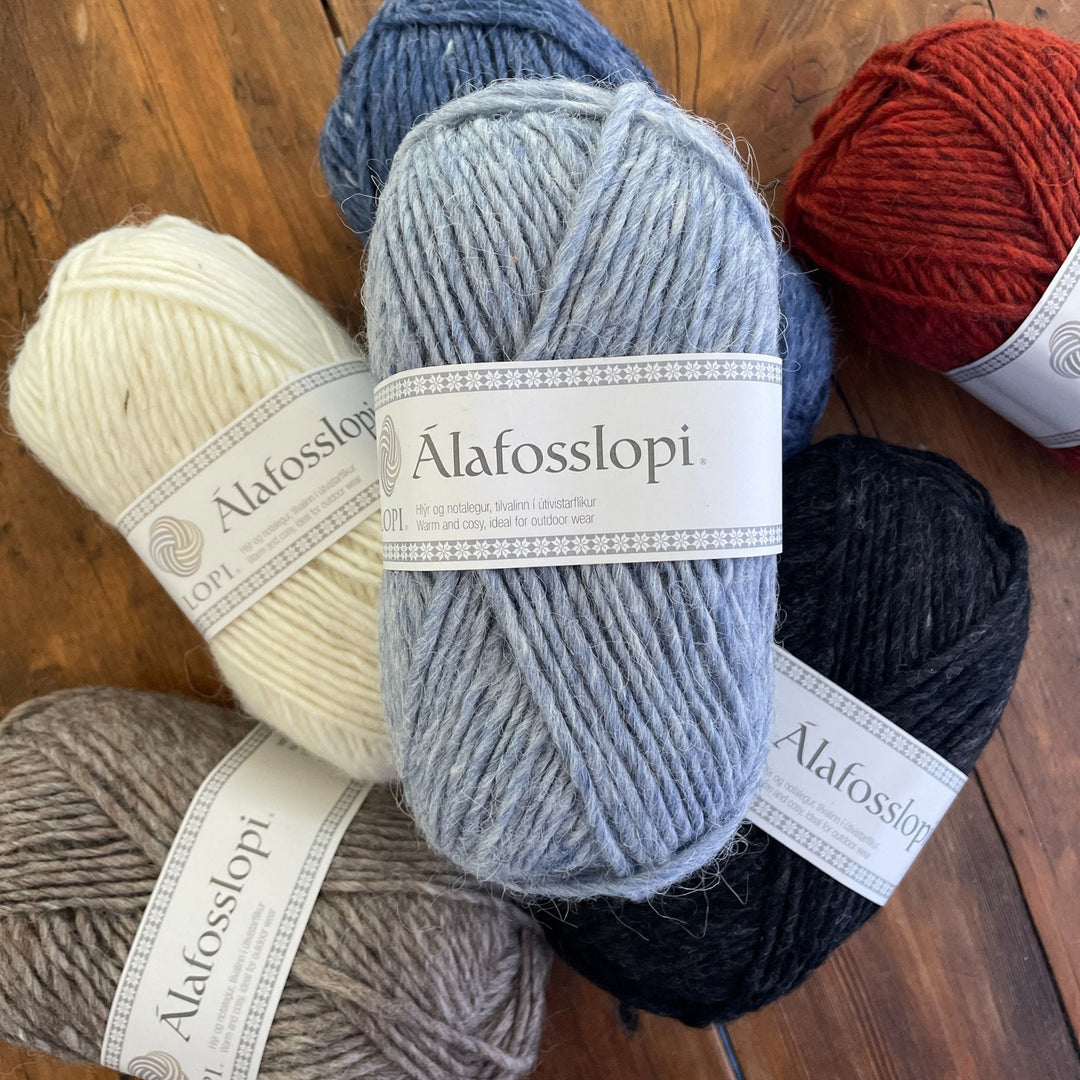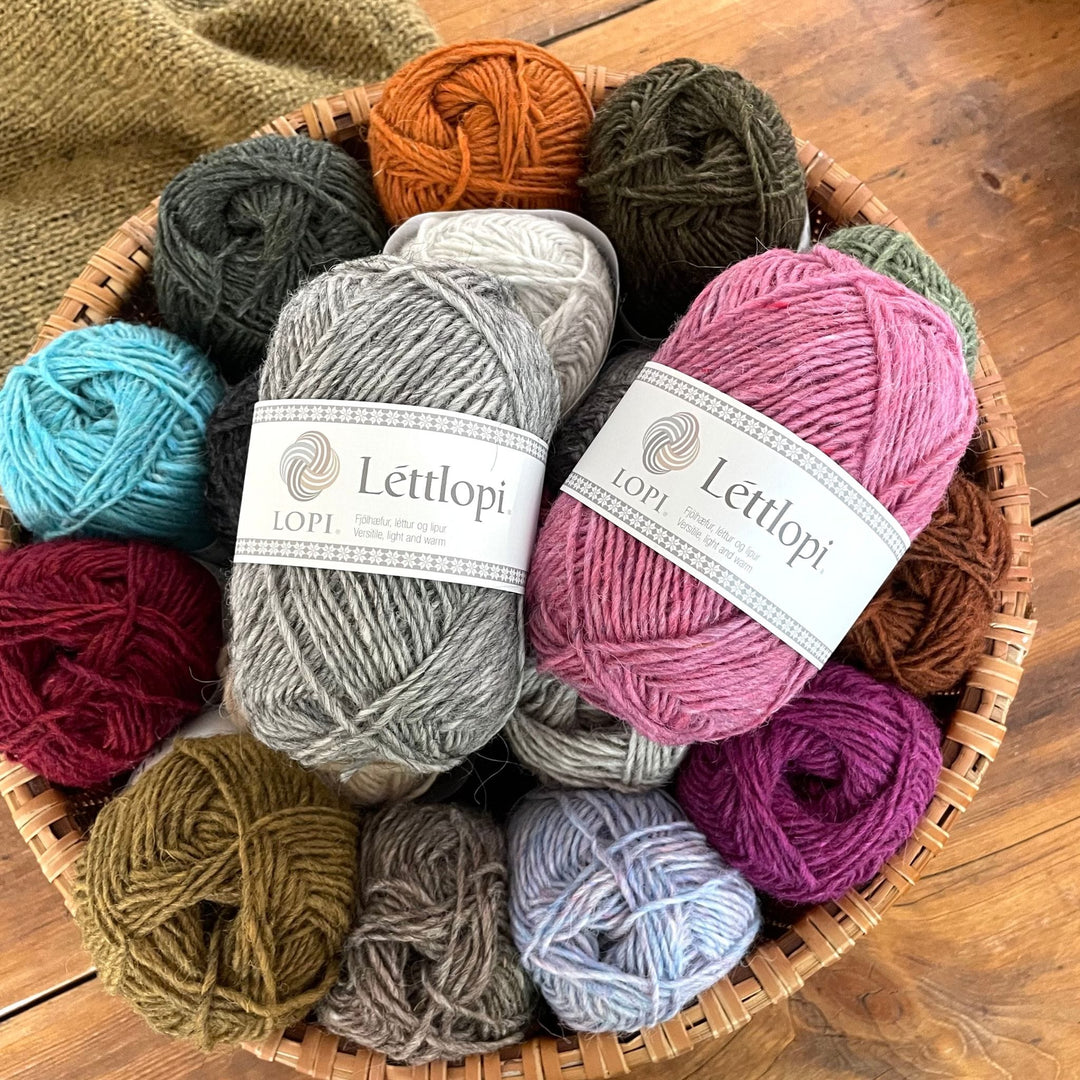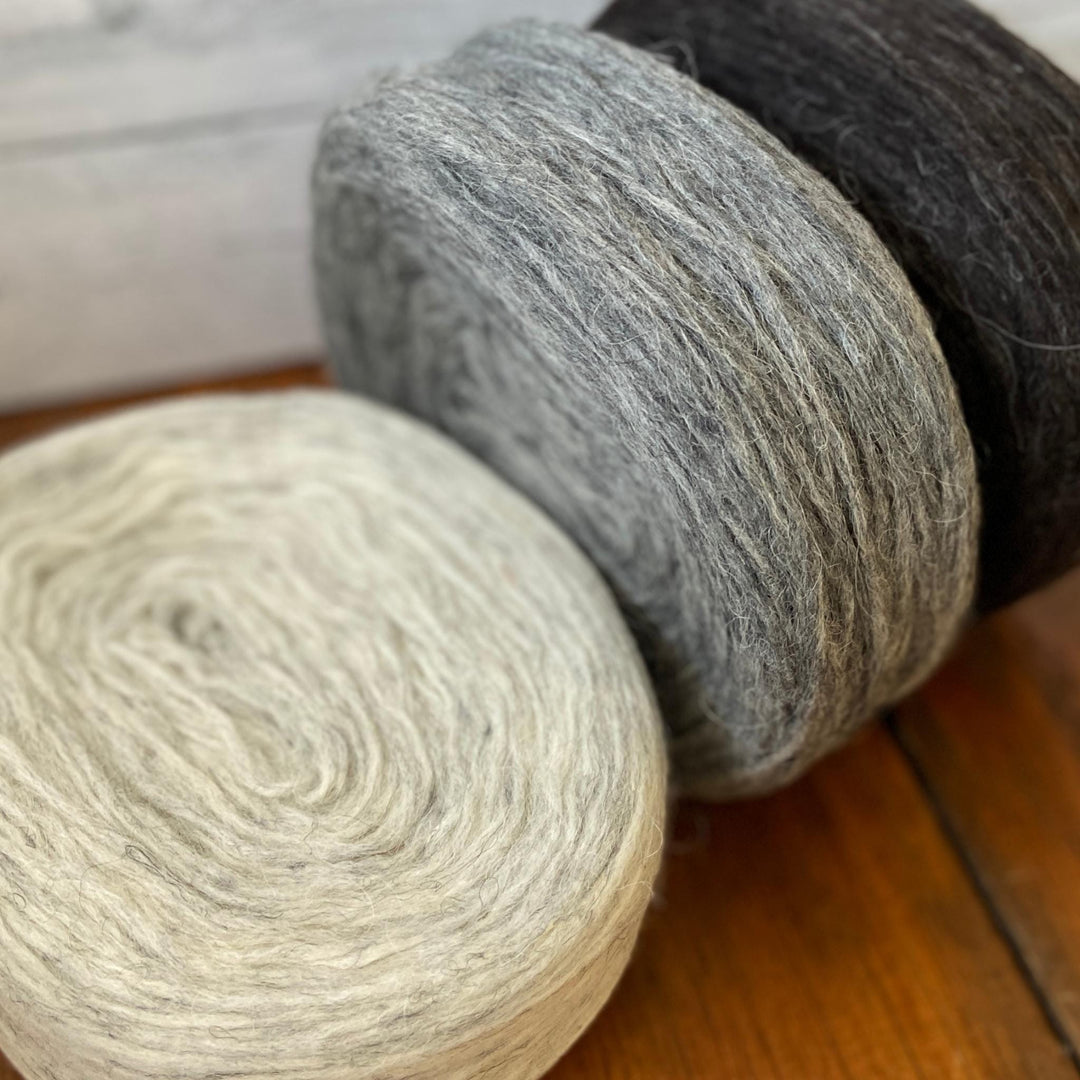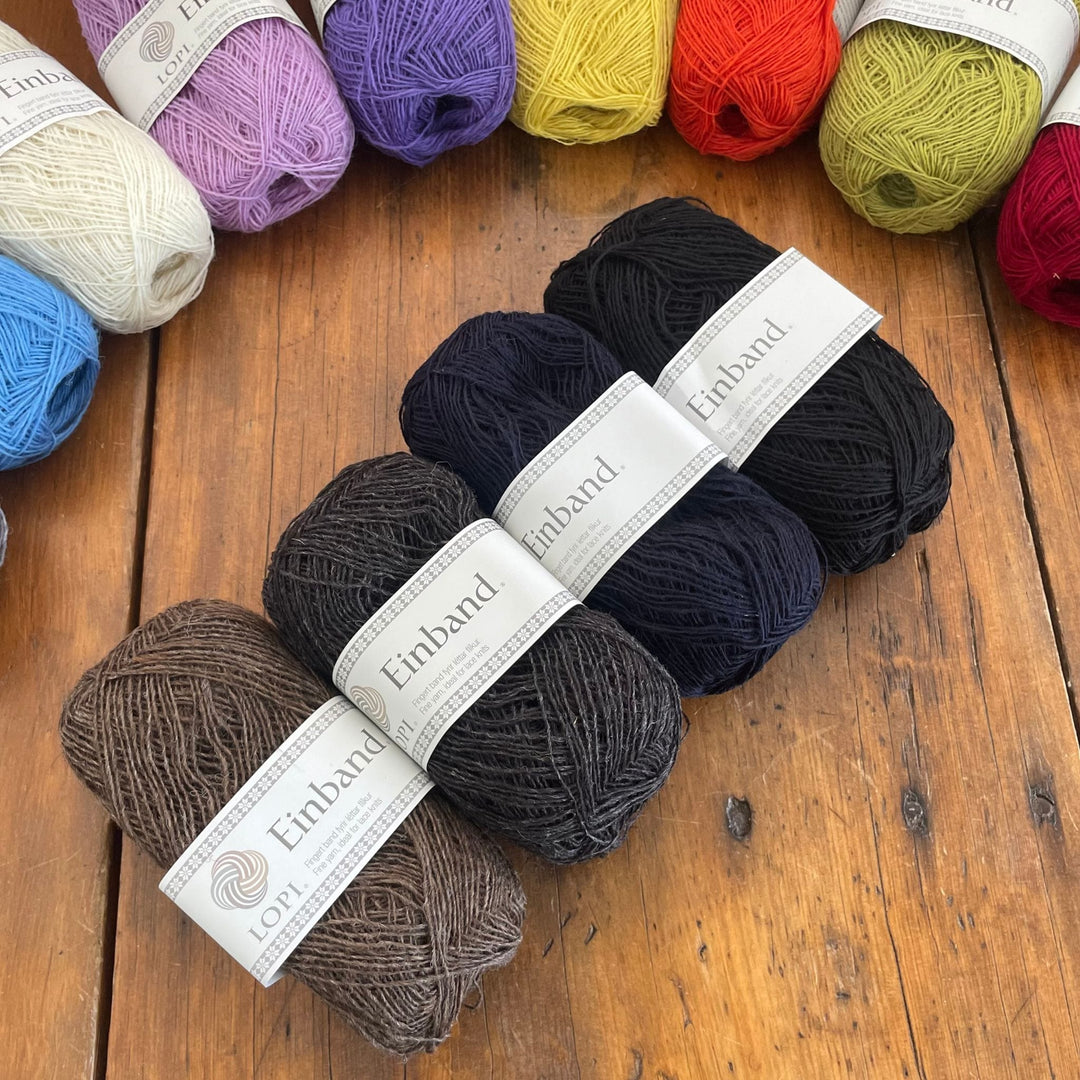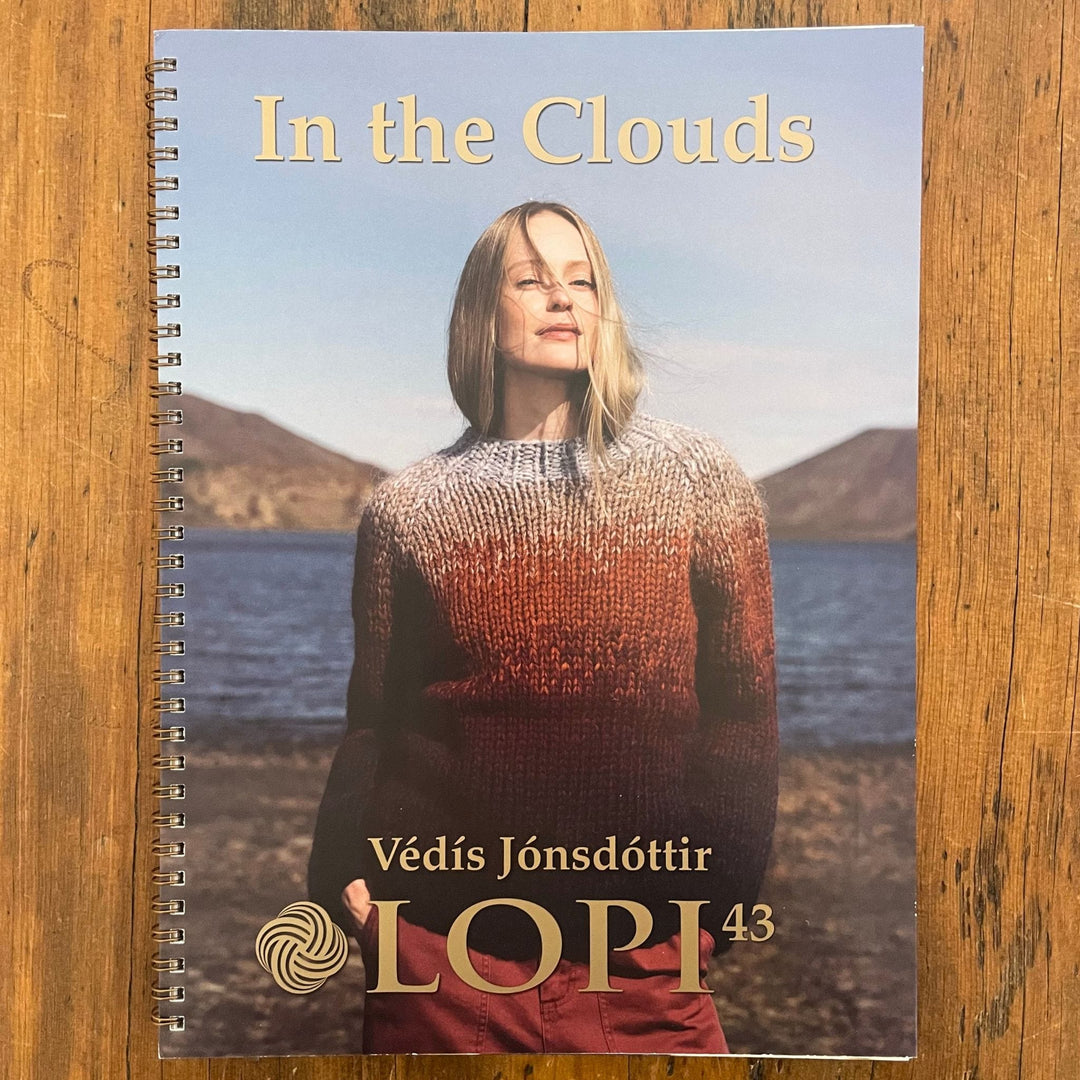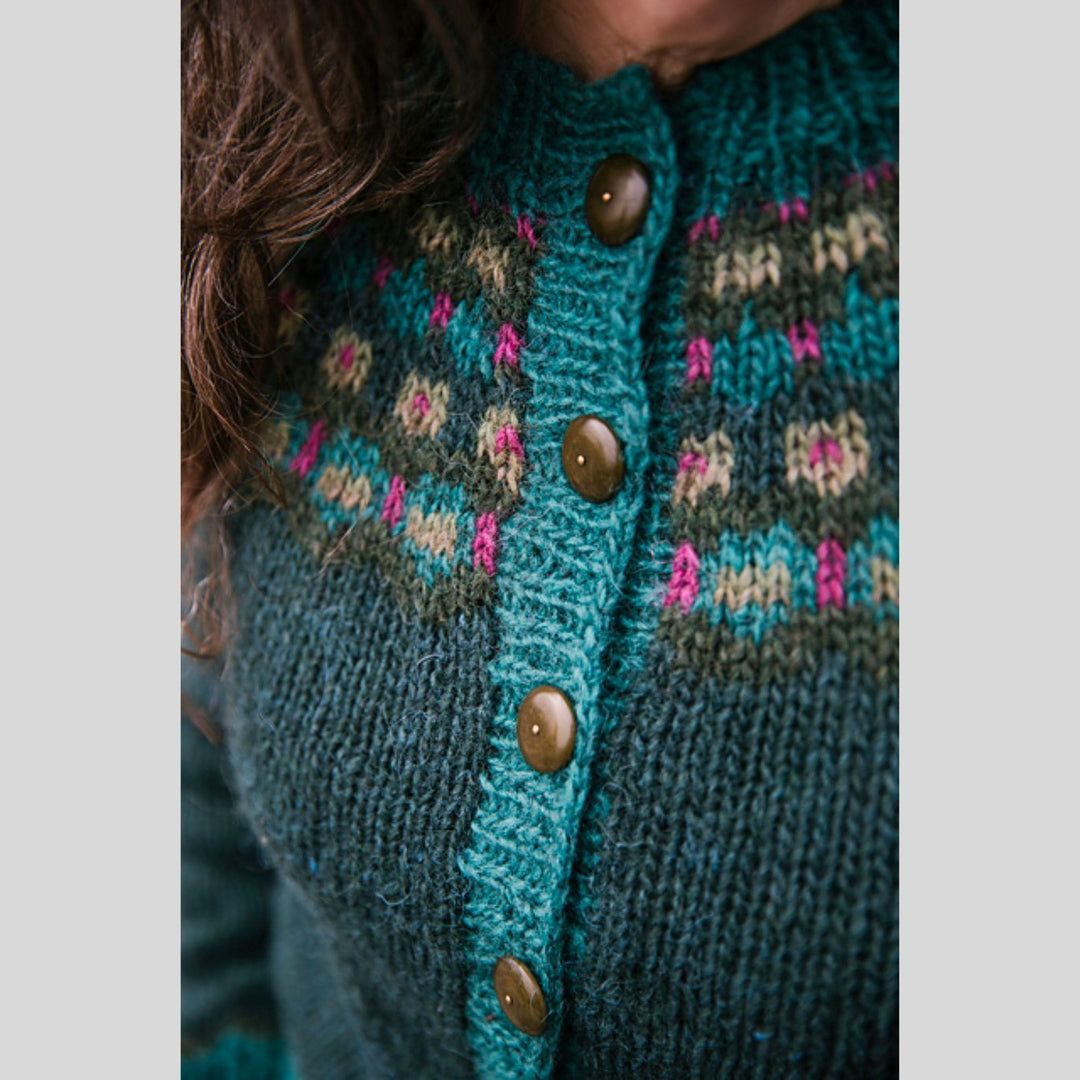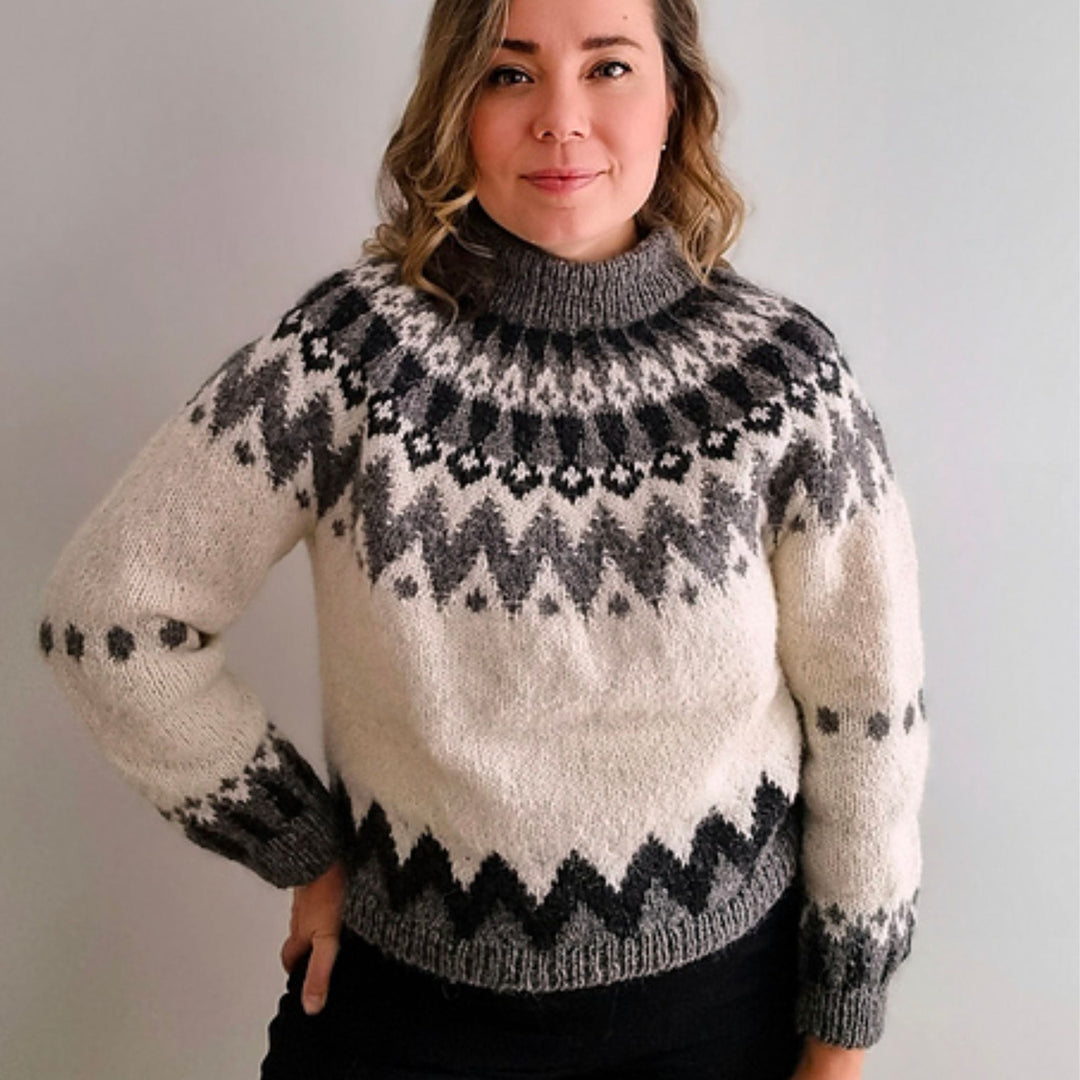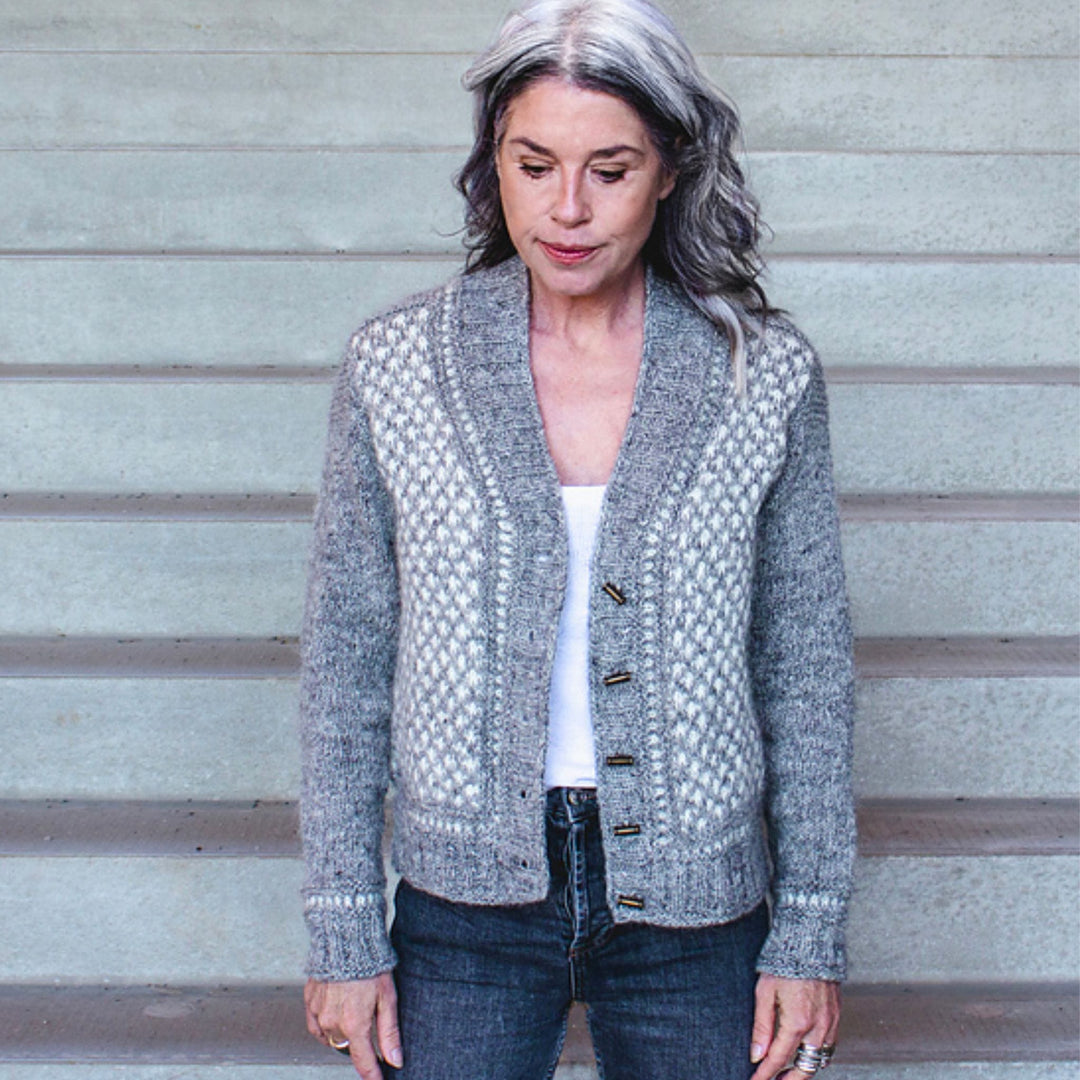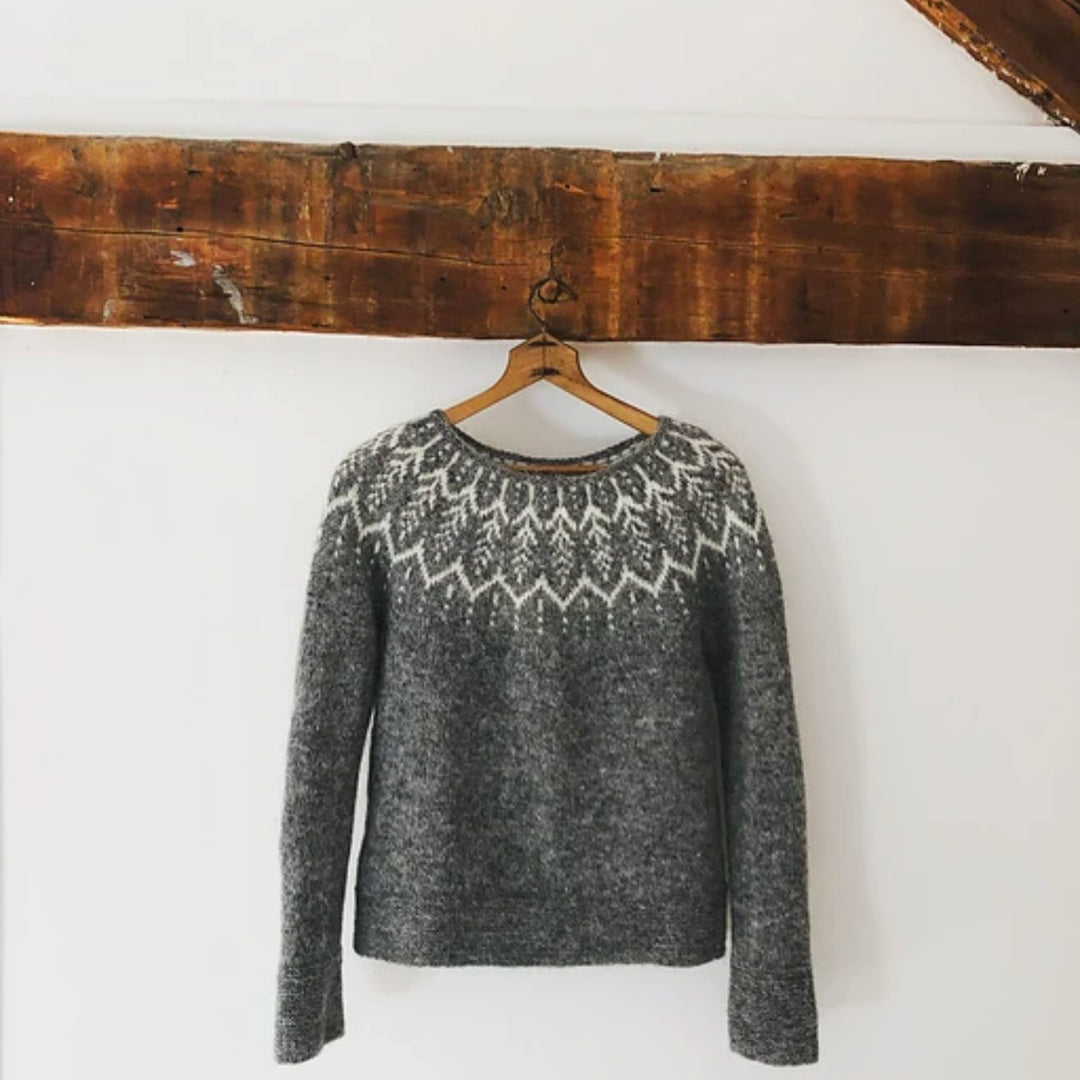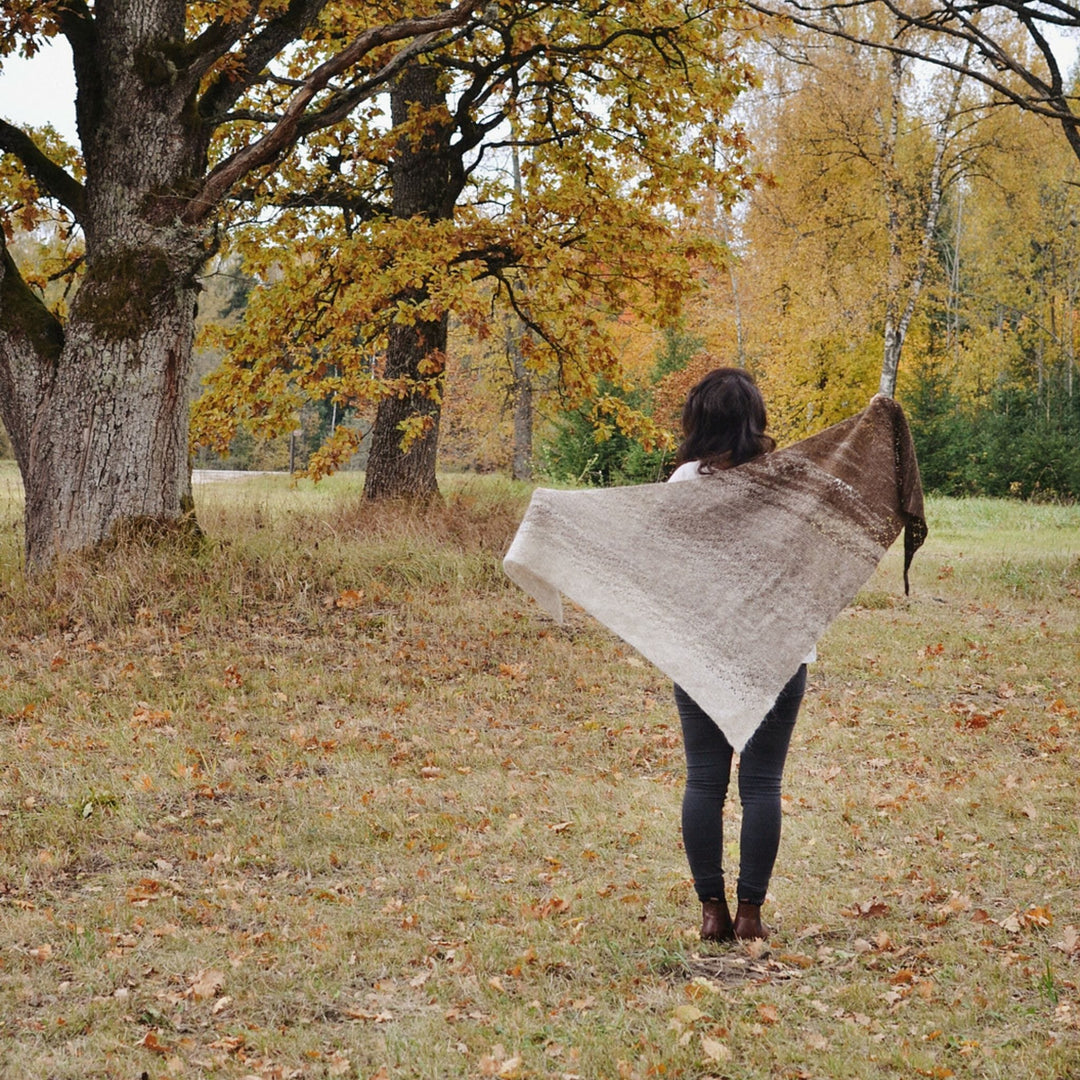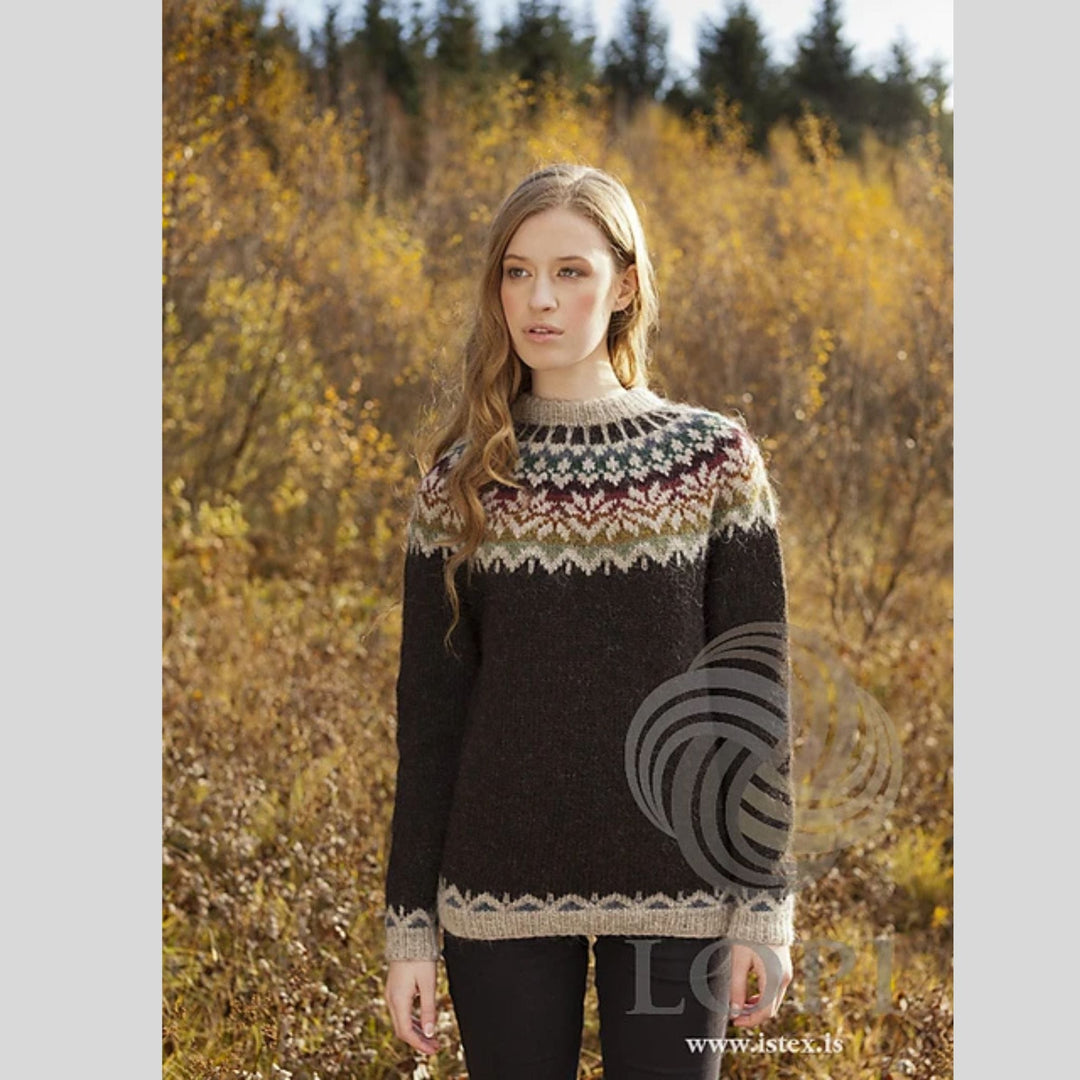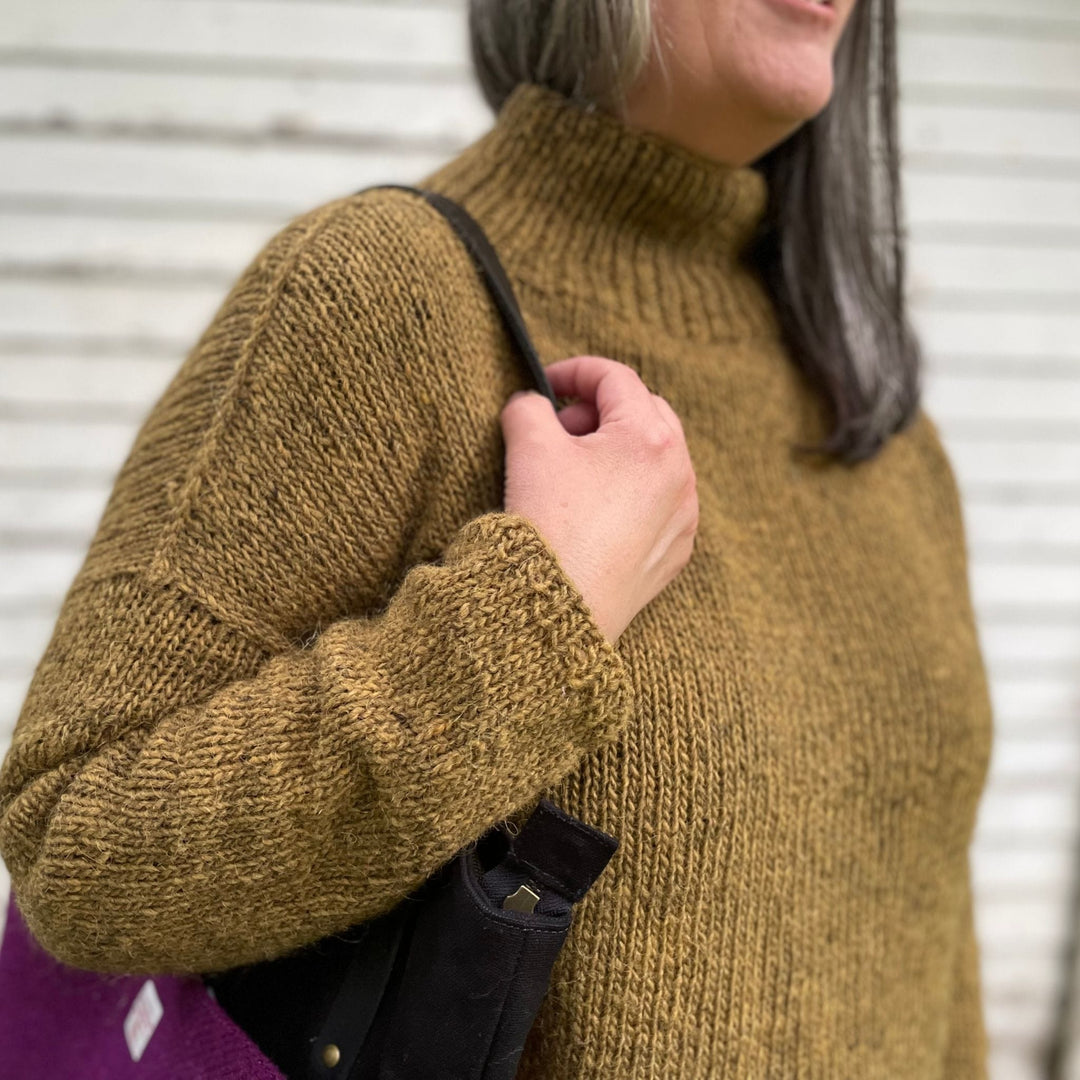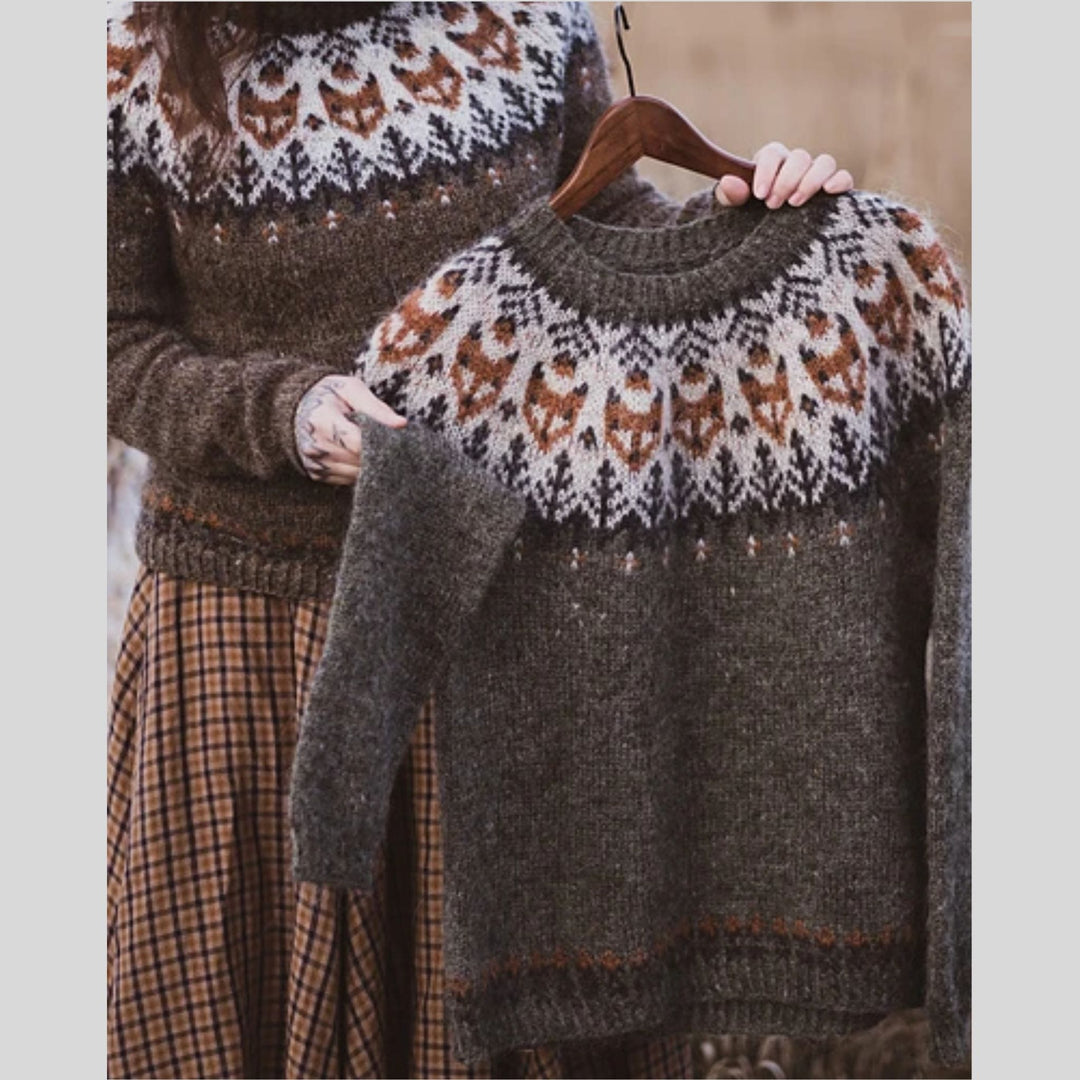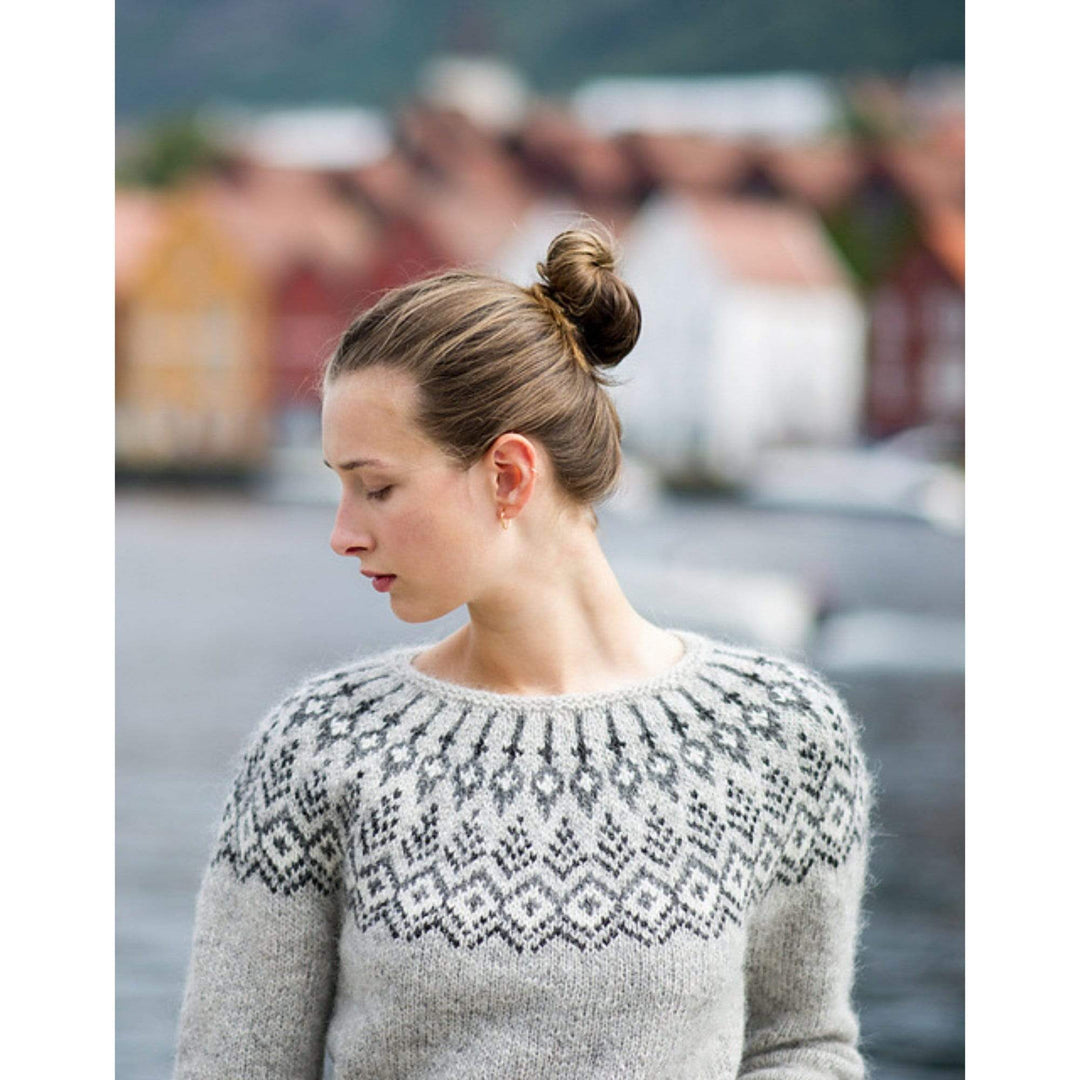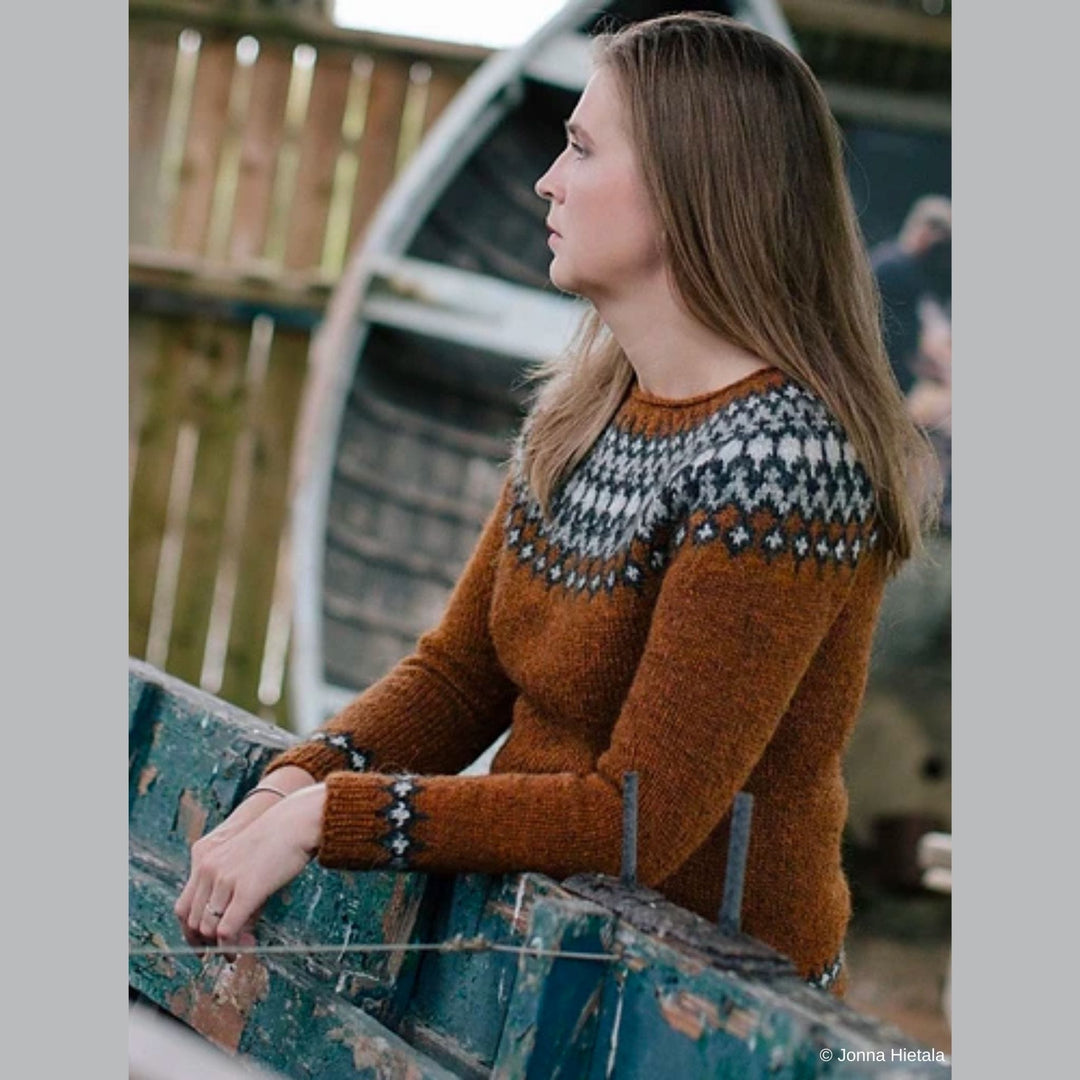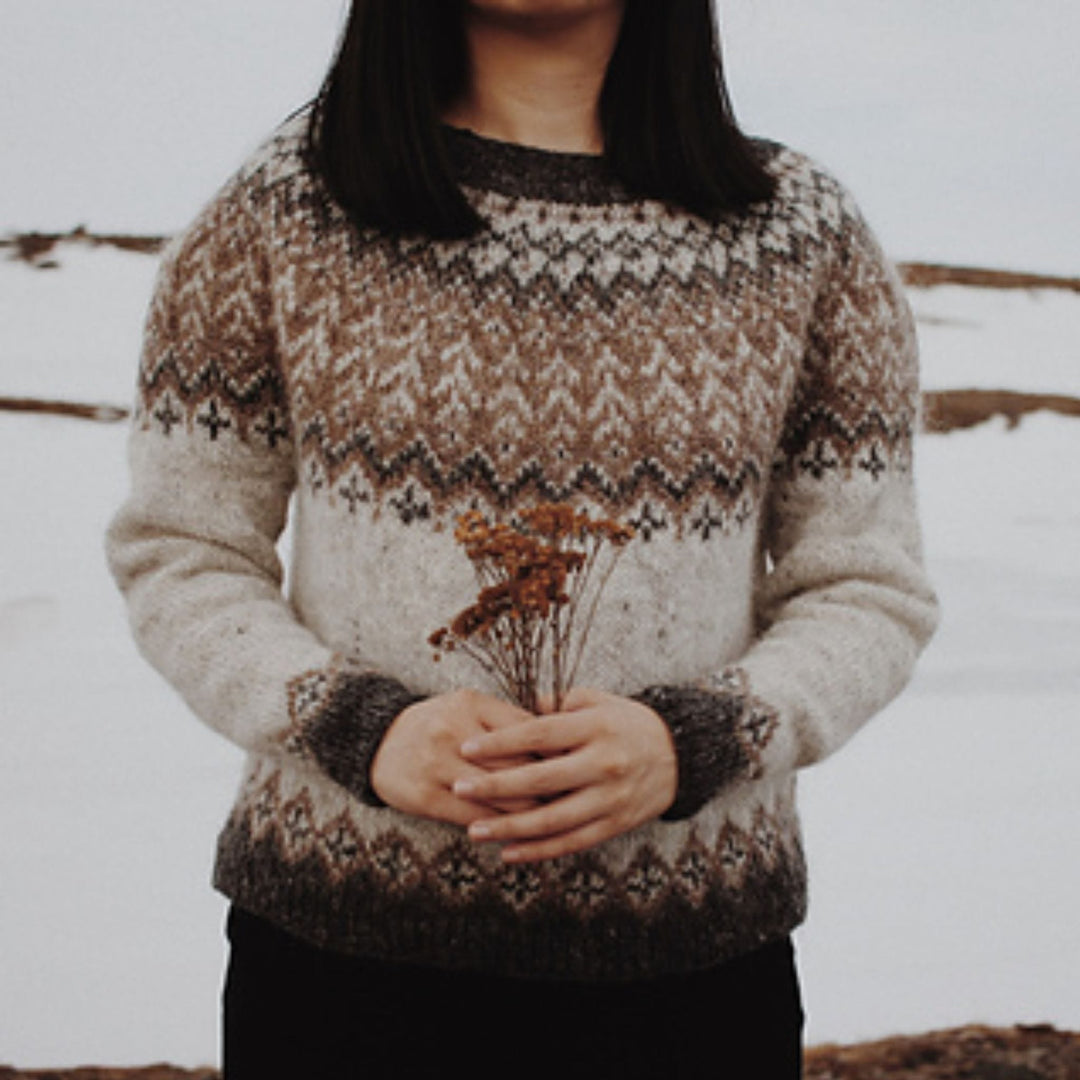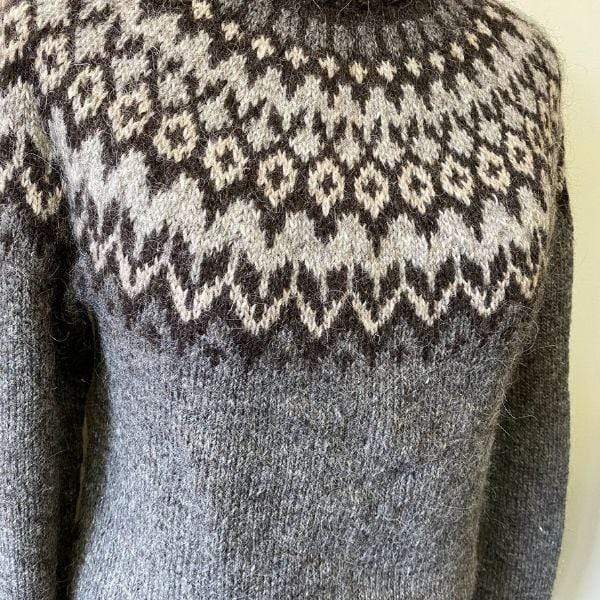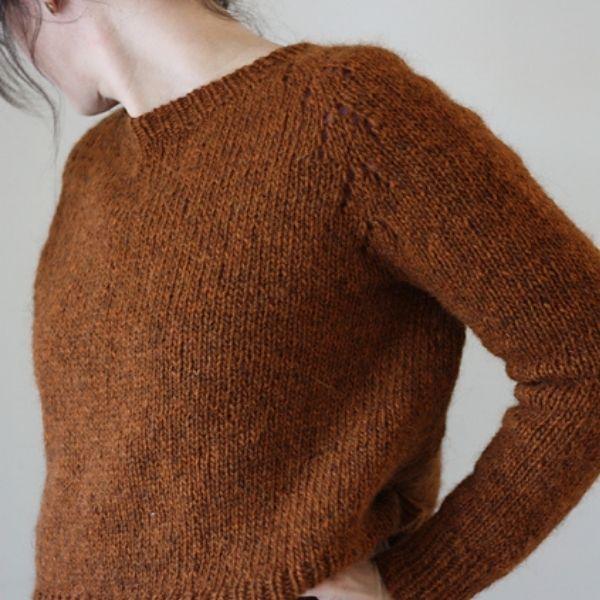Icelandic Lopi Yarn
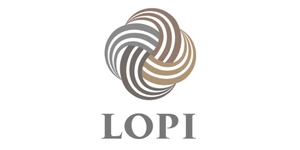
Icelandic Sheep
It is said that without sheep, Iceland would have been uninhabitable. The Vikings brought horses and sheep to the isolated island. While the horse provided transport and labor, sheep were key for providing food and wool as protection from Iceland's harsh weather.
Although the medieval sagas may have been inspired by deeds of heroism and feats of bravery, they also tell of the activities around which daily life revolved, among them shearing, spinning, and carding – skills and crafts that became traditions and have altered little through the ages. Nevertheless, textile production techniques have changed dramatically since the days of the early Viking settlers, but the commitment of Icelanders to quality and tradition has not.
Photo: Icelandic sheep, in southern Iceland by Jim Zuckerman
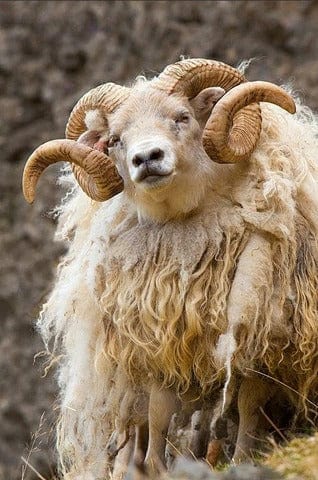
How Icelandic Yarn is Made
Icelandic wool is a natural product created on environmentally friendly principles. Care is taken throughout the manufacturing process. Only natural energy sources such as geo-thermal and hydroelectric power are used in the production of Icelandic wool, while the sheep from which the wool is harvested still graze freely in summer, as they have always done.
Wool is purchased directly from farmers, then sorted for the best quality wool. The wool is then washed, where the use of chemicals and detergents is kept to an absolute minimum to ensure that natural oils are preserved, leaving the wool as warm, light, and water-resistant as nature herself made it.
Finally, the highest quality wool is selected for spinning into the finest yarn before being knitted into a wide range of products including the iconic Lopi sweater and other garments and accessories. Icelandic wool comes in several natural shades including black, gray, brown and white. The wool takes colors well and so there is a large array of colors to choose from. We stock both Lettlopi and Plotulopi for their warmth, softness and lightness of fiber.





















